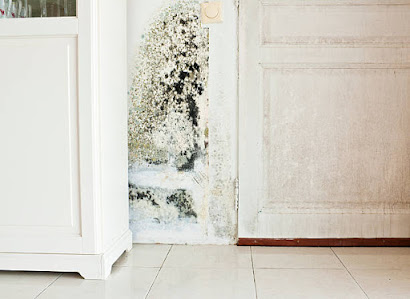Can an Air Purifier Remove Smells? Understanding How It Works and What to Expect
Air purifiers improve indoor air quality and reduce airborne particles. They
help with allergies. But, can they remove unpleasant smells? The answer depends
on the type of air purifier and its filtration technology. Let’s explore how
different purifiers tackle odors, what types are most effective, and when it’s
worth investing in one for odor control.
How Air Purifiers Remove
Smells
Air purifiers generally
filter out particles in the air. Some also neutralize odor-causing compounds.
Here’s a breakdown of the main technologies found in air purifiers and how they
target odors:
1.
Activated Carbon Filters Activated
carbon filters are the most effective type for odor removal. The carbon
material has millions of tiny pores. They capture and absorb volatile organic compounds
(VOCs), gases, and odors from pets, cooking, smoke, and chemicals. When an air
purifier includes an activated carbon filter, it can trap these odor molecules
rather than simply masking them.
2.
HEPA Filters HEPA filters are great at capturing dust,
pollen, and pet dander. But, they don't remove odors. They are designed to trap
particles as small as 0.3 microns, but VOCs and odor molecules are often much
smaller and pass through HEPA filters. Many air purifiers combine HEPA and
activated carbon filters. This makes them effective against both particles and
odors.
3.
Some air purifiers use UV-C light to kill bacteria,
viruses, and some microbes. While this doesn’t directly remove odors, it can
help reduce smells caused by mold or bacteria over time. UV-C light can help in
places where these contaminants cause odors.
4.
Ionizers work by releasing negatively charged ions.
They attach to airborne particles, causing them to clump together and fall.
While this can help reduce some types of airborne particles, ionizers are
generally not effective against odors. Some units that combine ionization with
activated carbon may perform better for odor control.
Common Household Smells
an Air Purifier Can Help Remove
Air purifiers equipped
with the right technology can help tackle a variety of indoor smells. Here are
some common household odors and how well air purifiers handle them:
·
Cooking Odors: An air purifier with an activated
carbon filter can reduce cooking odors. It is especially effective against
strong smells from fried foods and spices.
·
Pet Odors: For pet owners, activated carbon
filters can absorb pet smells. They are caused by dander and accidents. HEPA
filters trap fur and dander.
·
Smoke Odors: Smoke from
cigarettes, fireplaces, or cooking can be challenging to eliminate. Activated
carbon filters absorb smoke particles and reduce odors. For heavy smoke smells,
consider a high-capacity or smoke-specific unit.
·
Chemical and VOC Odors: Products like cleaners,
paint, and synthetic materials release VOCs. They produce strong smells.
Activated carbon is essential in removing VOCs, so look for an air purifier
specifically rated for VOC filtration.
·
Musty or Moldy Smells: For musty odors from mold
or mildew, use a mix of HEPA filters, activated carbon, and maybe UV-C tech.
This may reduce the smell and slow mold growth.
Recommended Air Purifier for Odor Control
Here are some well-regarded air purifiers that are effective at odor removal:
· UV Care Desk Air Purifier: This compact model uses UV-C light. It uniquely reduces odors, especially those from bacteria or mold.
·
Honeywell HPA300: This model has a HEPA filter
and an activated carbon pre-filter. It works well in medium to large rooms and
reduces common odors.
·
Levoit Core 300: This cheap purifier uses a HEPA
filter and activated carbon. It cuts light odors and common allergens.
·
Austin Air HealthMate: This high-end model has a
large activated carbon filter and HEPA filtration. It is very effective against
strong odors and VOCs.
FAQs About Air Purifiers
and Odor Removal
1. Can a regular
air purifier remove all odors in the home? Not all air purifiers can
remove odors effectively. Only models with activated carbon or specialized
filters can target odor molecules. They are the only ones that can do it
efficiently. A standard HEPA-only air purifier may reduce allergens but won’t
impact odors much.
2. How long does
it take for an air purifier to reduce odors? An air purifier can
reduce most household odors within a few hours. The results depend on the
smell's strength and the unit's capacity. Persistent or strong odors may
require several hours to several days of continuous use.
3. Do air
purifiers eliminate or just mask odors? An effective air purifier
removes odor-causing particles instead of just masking them. Activated carbon
traps and absorbs odor molecules, so the smell is actually removed from the air
rather than simply covered up.
4. Will an air
purifier help with seasonal smells like holiday cooking or musty winter air?
Yes, an air purifier with a high-quality carbon filter can help manage seasonal
smells. Cooking, especially at the holidays, can make a home musty. Winter's
closed-up homes add to it. Continuous air purification can help.
Conclusion
Air purifiers, especially
those with carbon filters, can reduce home odors. They're very effective. For
everyday smells or issues like smoke, pets, or VOCs, a good air purifier can
help. Choose one with the right filtration technology.








Comments
Post a Comment